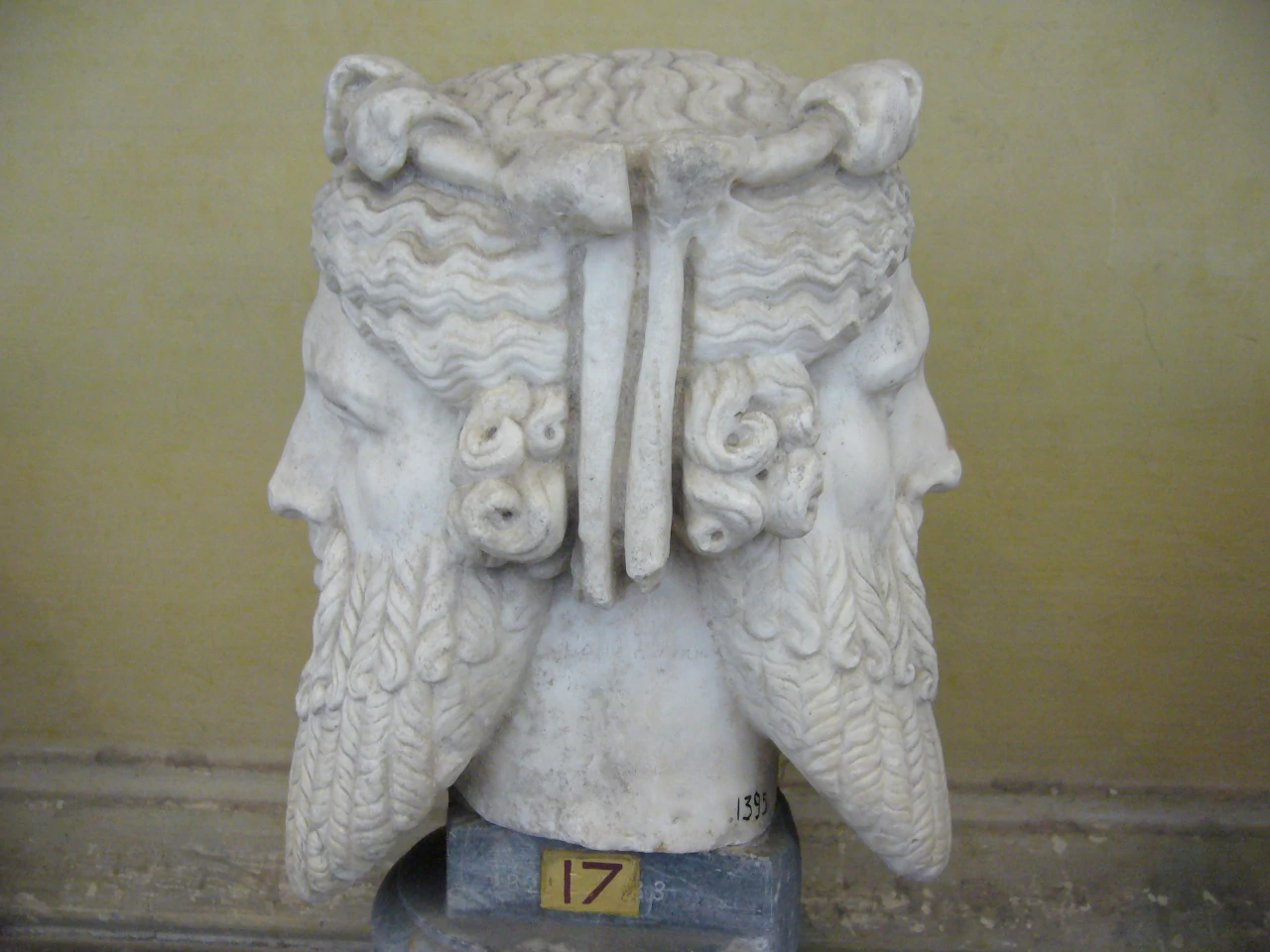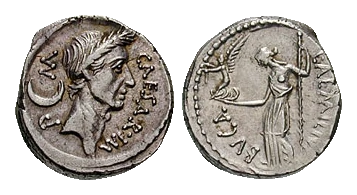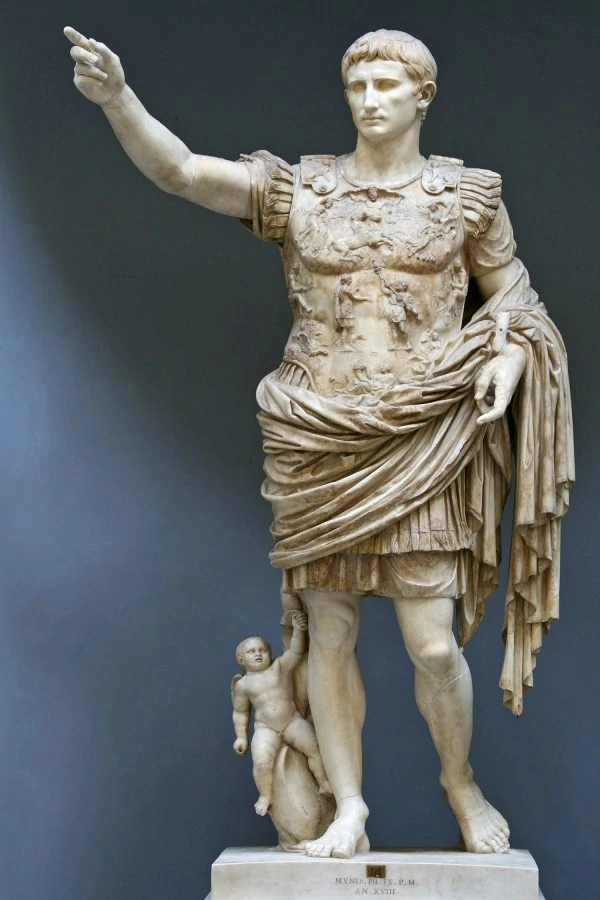It may come as a surprise to you to learn, but the names of all the months in English are borrowed from another language. Yes, it’s true! Every single one. English speakers receive the names of the months from Latin, which was the language spoken by the ancient Romans over two thousand years ago.
The Latin language has a strong connection with English. We get many words from Latin, some of them are words that we use every day. Today, let’s explore one of those connections. We’ll look at the history hidden in the names of the English months! What you learn may surprise you.
January
In Latin, the first month of the year was called Januarius. It was named after the Roman god of time, Janus, who had two faces. One face looked forward into the future, while the other looked into the past. As the first month of the year, you can see how this theme is appropriate. Many people reflect on the previous year and plan for the year ahead in January. The Romans did too! Did you make any New Year’s resolutions this year?

February
The month of February was named after the Roman ritual known as Februa. This ritual was used to purify the city of Rome and release health and fertility for the coming spring. It occurred from the 13th of February to the 15th and was a major Roman holiday. We can see how a month so close to the beginning of spring was an ideal time to cleanse. Even now there is the idea of “spring cleaning” in the English speaking world. Where people clean up after a long, hard winter. This idea is preserved in our modern name for the month.
The Romans called this month Februarius. The month of February was named after the Roman ritual known as Februa. This ritual was used to purify the city of Rome and release health and fertility for the coming spring. It occurred from the 13th of February to the 15th and was a major Roman holiday. We can see how a month so close to the beginning of spring was an ideal time to cleanse. Even now there is the idea of “spring cleaning” in the English speaking world. Where people clean up after a long, hard winter. This idea is preserved in our modern name for the month. The Romans called this month Februarius.
March
March is a great time of year, right? The weather is warming up, while plants and animal are beginning to wake up from their months long sleep. Martius, as the Romans called it, was also an important time for ancient peoples as it was a time when the snow was melting and warm weather was once again coming.
However, it was still too early to begin planting crops. So, March was the perfect time to wage war and conduct raids on neighbouring enemies. As such, this month came to be named after the god of war and battle, Mars.
April
The Romans knew this month as Aprilis. Its names comes from the Latin word aperire, which means “to open” in English. This is because during this time in the Spring plants are beginning to flower and bloom and animals are coming out of their burrows and becoming active again. So, in the spring time the world seems to “open up” and become alive again after the cold dead months of winter.

May
Maia, the Roman goddess of growth, gives her name to May, or Maius as the Romans called it. On the first day of May the Romans would sacrifice a pregnant pig to Maia to honour her as a goddess of the Earth.
June
This month was said to be the best month to get married by the Romans. It’s fitting that the name comes to us from the Roman goddess of marriage, Juno. Even today, many people think the best time to get married is during the summer months and the Romans thought no different for the month of Junius.
July
Far back in Roman history this month was called Quintilis. This is one of many months in the Roman calendar named by numbering. In this case, the Roman number for five, quinque. That is because at that time there were only five months in the year and the year began in March! After the assassination of the famous Roman general and politician Julius Caesar, the month’s name was changed to Julius and so, today in English we have the month July.

August
Similarly to July, August had also received its name from a Latin number. Historically, the Romans called this month Sextilis. This comes from the Roman word for six, sex. While, in English this word means something completely different 2000 years ago this meant 6 to the Romans, really!
Shortly after the death of Julius Caesar his adopted son Octavian became the first emperor of the Roman Empire. He received the name Augustus (this roughly translate to the majestic in English) from the Roman senate. In 8BC it was renamed to August in his honour due to his many military accomplishments during this month and we still call it such today!

September
This is one of the months that still has the same ancient name given to it by the Romans. In Latin this month was also called September. It comes from the Latin word for seven, septem. This is the third month we have spoken about named after a number. Yet, if you were paying attention you would see that July isn’t the fifth month; it’s the seventh! Same for August, which isn’t the sixth month; it’s the eighth! The same is true for September. This month is not the seventh month of the year. We know it as the ninth. So what gives? Why do we have this difference between the name of the month and its actual place in the year?
There is actually an extra layer of history in the English months of the year. A long time ago in Roman history the months January and February didn’t exist. The year started in March as the weather began to change and there were only 10 months in the year. So, July was the fifth month, August was the sixth, and so on. In 700BC the Roman king Numa Pompilius added January and February to the Roman calendar, this pushed down all the months in the year by two places. Even though this became the case the Romans still called the months by their old names and we do too!
October, November, December
These months are again named after the Roman numbers: octo, novem, decem. These are prefixes you might recognize from words such as:
- the octo- in octopus or octagon
- the decem-/deci- in the words decimate, decibel, or decimal.
Octo- means eight, Novem means nine, and decem means ten.
While in modern times October is the tenth month of the year, at one point it was the eighth. The same goes for the months November, which was the ninth month of year. As well as for December, which was the tenth month of the year.
This is similar to many languages which number the months of the year. Such as in Japanese where the name of each month translates directly into English as “month 1”, “month 2”, “month 3”, etc. However, due to the thousands of years of history behind the names of the months in English we’ve received the jumbled mess that we all know and love today!
That’s the story of the English months!
Did you know this piece of English word history? English owes a lot of its words to the Latin language. Most often you’ll see these types of words being used for medical or scientific words, but there are many English words we use every day which are given to us by Latin. Words that you might not even think twice about being borrowed because they’re so common! If you haven’t already, be sure to read my last hidden history article about the history hidden in the common English words for food!



